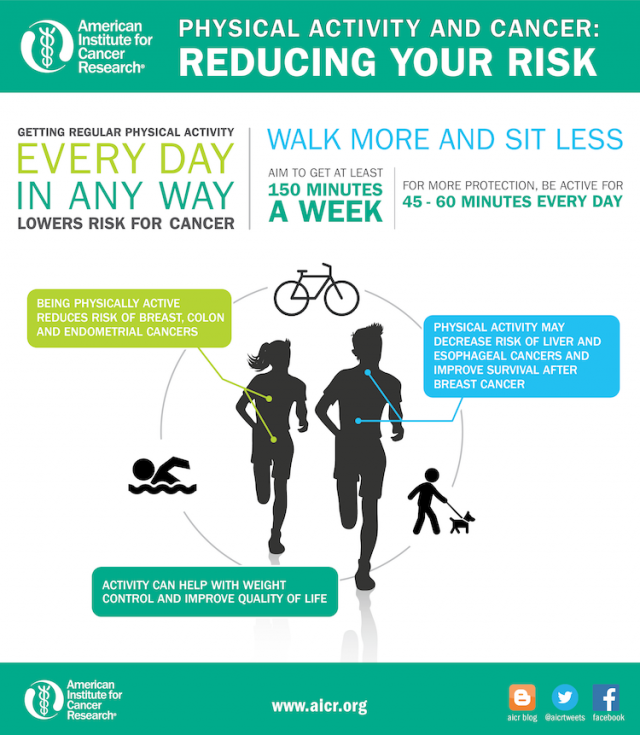AICR’s evidence shows that having too much body fat increases risk for eleven cancers. But researchers are looking at whether losing weight, once overweight, would lead to lower risk for these cancers. Now a new study from researchers at Fred Hutchinson Cancer Research Center shows how weight loss – through diet alone or diet and exercise – might change pro-cancer substances in the body.

The 12-month controlled trial of 439 healthy, postmenopausal women with overweight/obesity included 4 randomized groups: calorie restriction diet; moderate activity (goal of 3.75 hours per week), diet and exercise, and no intervention. Researchers wanted to see if these lifestyle changes would affect four substances in the body (biomarkers) that influence formation of blood vessels needed for tumor growth. Fat cell growth also requires a greater blood supply, so these biomarkers are also associated with increasing fat tissue.
After 12 months, women in the exercise group lost 2.4% of their body weight; diet only reduced by 8.5% and those exercising and dieting lost 10.8% of their weight. And the more they lost, the more their biomarkers were reduced.
Women who exercised and dieted lost more weight. The women in the exercise only group did not have significant change in biomarker levels.
This may mean losing weight can lower cancer risk. Lower levels of these substances in the body may make it more difficult for cancer cells and tumors to grow because they aren’t able to get the nutrients they need from blood.
While this study suggests that weight loss in people with overweight and obesity may reduce cancer risk, we need more work to understand the role of these biomarkers, say the study’s authors. And although headlines emphasize weight loss through diet as key in this study, AICR’s evidence shows that getting at least 30 minutes daily of moderate physical activity lowers risk for colorectal, endometrial and breast cancers.

This study was conducted by researchers at Fred Hutchinson Cancer Research Center and supported by grants from the National Cancer Institute and the Breast Cancer Research Foundation.





